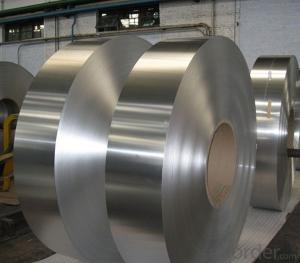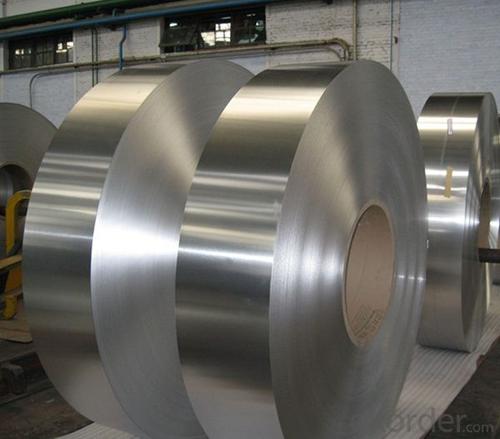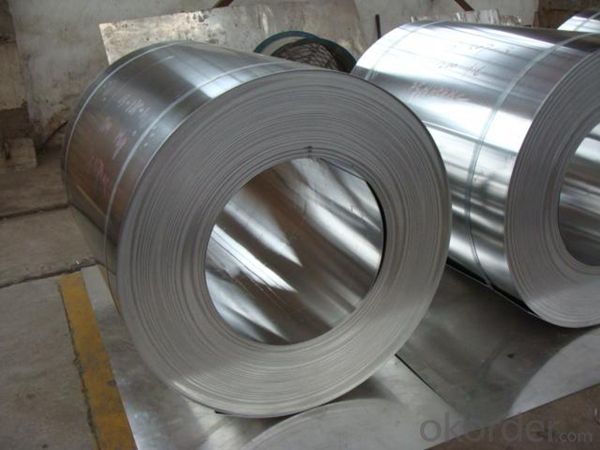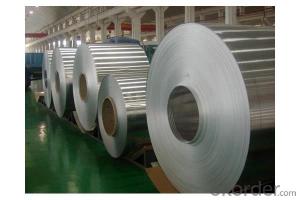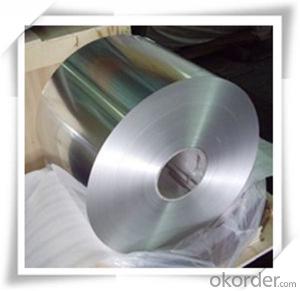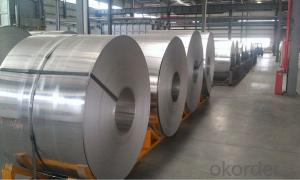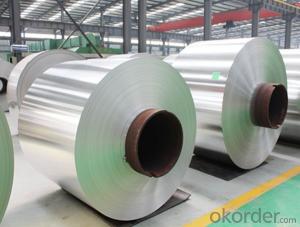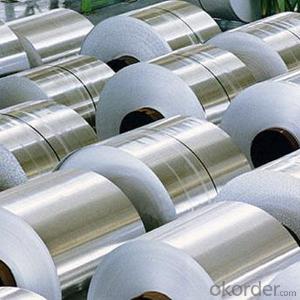Grey Bronze Aluminum Coil for Metal Roofing 1xxx 3xxx 5xxx
- Loading Port:
- Shanghai
- Payment Terms:
- TT OR LC
- Min Order Qty:
- 5 m.t.
- Supply Capability:
- 1000 m.t./month
OKorder Service Pledge
OKorder Financial Service
You Might Also Like
Specification
Aluminum Coil for Metal Roofing 1XXX 3XXX 5XXX
1.Structure of Aluminum Coil for Metal Roofing 1XXX 3XXX 5XXX
Aluminum Sheets are strengthened and cut from raw materials with different alloys, such as AA5005, AA5052, etc. They are easy for processing in different shapes, good in intensity and can be quickly installed. Aluminium Sheets for Energy Saving Curtain Walls are good in energy saving, weather resistance, fire resistance, easy for maintenance and with many colors.
Aluminium Sheets for Energy Saving Curtain Walls are widely used in construction of metal walls, metal ceilings, car decoration, advertizing panels, etc.
2.Main Features of Aluminum Coil for Metal Roofing 1XXX 3XXX 5XXX
•High intensity
•Easy to be processed and shaped
•Weather resistance
•Anti-pollution & environment protection
3. Aluminum Coil for Metal Roofing 1XXX 3XXX 5XXX Images
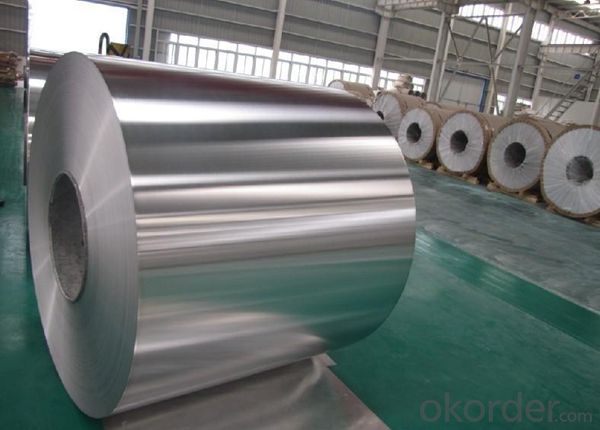
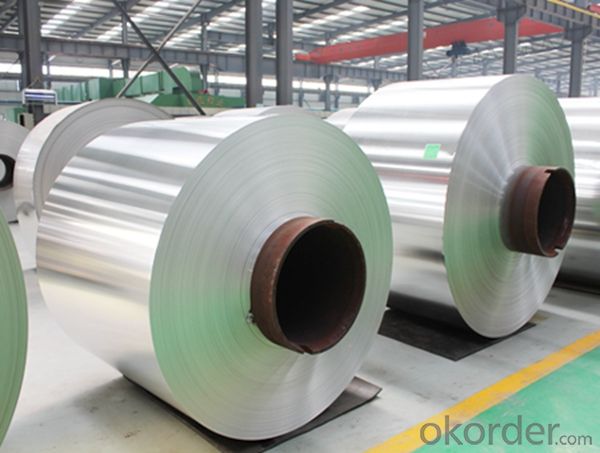
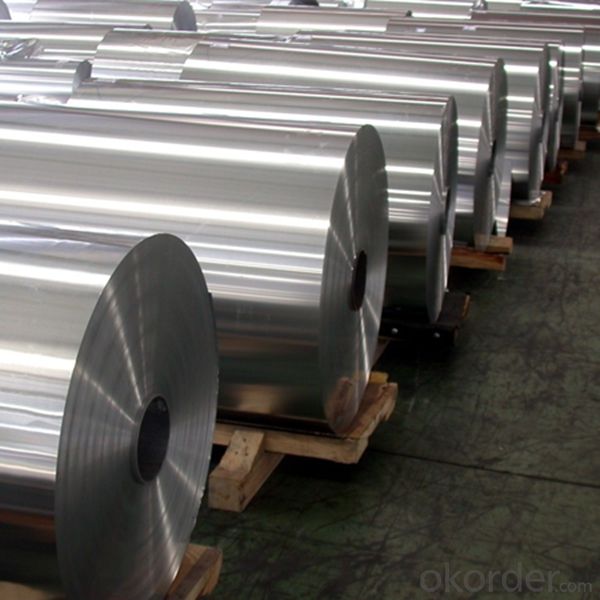
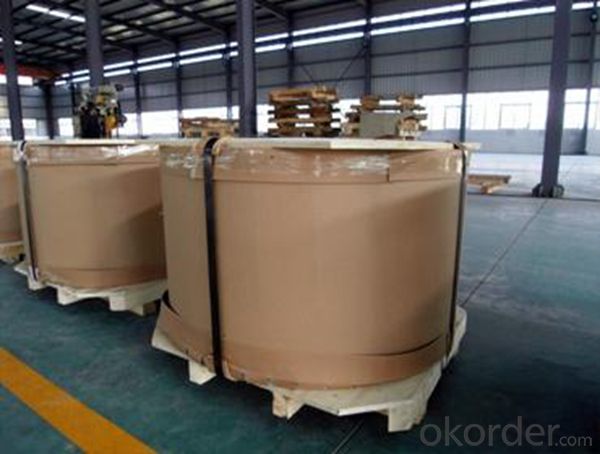
4.Specification of Aluminum Coil for Metal Roofing 1XXX 3XXX 5XXX
Alloy Number | AA5XXX 1XXX 3XXX |
Temper | H12, H14, H16, H18, H22, H24, H26, H32, HO, F |
Thickness | 0.1mm – 500mm |
Width | 10mm- 2200mm |
Standard | GB/T3880-2006, ASTM, ISO, EU standard |
5.FAQ of Aluminum Coil for Metal Wall 1XXX 3XXX 5XXX
A.What about inspections to guarantee quality?
For each order for Aluminum Sheets with Mill Finished Surface AA5XXX, we will arrange strict inspection for raw materials, inspection during production and inspection for finished goods.
With requirement of customers, we also can arrange the third party inspection.
B.What about delivery?
We will put order for Aluminum Sheets with Mill Finished Surface AA5XXX in production schedule after order gets confirmed against copy of TT or L/C. Normally it takes about one month for production. Exact shipment schedule is different based on different sizes and quantity.
C.What is the MOQ?
5 tons for each size.
D. Where have you exported aluminium sheets?
We have exported aluminum sheets to many countries. Main markets include South East Asia, Middle East, North America, South America, etc.
- Q: Are aluminum coils suitable for architectural façade systems?
- Yes, aluminum coils are suitable for architectural façade systems. Aluminum is a highly versatile and durable material that can be easily shaped and manipulated to meet the specific design requirements of a building's façade. It is lightweight, corrosion-resistant, and can withstand harsh weather conditions, making it an ideal choice for long-lasting exterior applications. Additionally, aluminum coils can be coated with various finishes, such as paint or anodizing, to enhance their aesthetic appeal and provide additional protection against fading or chipping. The flexibility and versatility of aluminum coils make them an excellent option for architectural façade systems, allowing for creative and unique designs while maintaining durability and performance.
- Q: What are the different protective coatings available for aluminum coils?
- Some of the different protective coatings available for aluminum coils include polyester, PVDF (polyvinylidene fluoride), epoxy, and acrylic coatings. These coatings help to enhance the durability and resistance of the aluminum against corrosion, UV rays, and harsh weather conditions.
- Q: How are aluminum coils used in the production of consumer electronics?
- Aluminum coils are commonly used in the production of consumer electronics for various purposes such as heat dissipation, electrical conductivity, and structural support. They are often found in devices like laptops, smartphones, and televisions, where they help in maintaining the temperature of internal components, ensuring efficient performance. Additionally, aluminum coils are used in circuit boards and connectors to facilitate the flow of electricity and enhance conductivity. Their lightweight nature and corrosion resistance make them ideal for consumer electronic applications.
- Q: What is virgin aluminum? I can't find anything about it, is it just another word for aluminum? Is there a difference?
- Aluminum that contains no recycled aluminum.
- Q: Why the end of the aluminum coil will have a yellow spot?
- Without coolant processing one, to see if there is no stain, so you can engage in removal of cooling liquid is not interference. Blank surface should have a layer of alumina film processing, heat, such conditions should make the cooling liquid and the alkaline layer friction reaction
- Q: How are aluminum coils used in the production of air ducts?
- Aluminum coils are commonly used in the production of air ducts as they offer superior heat transfer and corrosion resistance properties. These coils are typically formed into a specific shape and size, allowing for efficient airflow and distribution of air throughout the duct system. The aluminum material is lightweight, making it easier to handle during installation, and its durability ensures a long lifespan for the air ducts. Additionally, the coils can be easily customized to meet specific requirements, such as insulation or noise reduction. Overall, aluminum coils play a crucial role in the manufacturing of air ducts, contributing to their functionality, efficiency, and longevity.
- Q: Are there any limitations to the minimum coil length of aluminum coils?
- Yes, there are limitations to the minimum coil length of aluminum coils. The minimum coil length is determined by various factors such as the manufacturing process, equipment capabilities, and the intended use of the coils. One limitation is the size and capacity of the manufacturing equipment. Most coil production lines have a minimum length requirement to ensure efficient operation and to prevent damage to the coils during the manufacturing process. If the coil is too short, it may not be properly processed or handled by the equipment, leading to production issues or product defects. Another limitation is the intended use of the coils. Certain applications may require a minimum coil length to meet specific requirements or to ensure optimal performance. For example, in industries such as construction or automotive, coils are often used to make components or structures that have specific length requirements. In such cases, the minimum coil length is determined by the specifications of the end product. Additionally, handling and transportation considerations also play a role in determining the minimum coil length. Coils that are too short may be more difficult to handle, transport, or store, making them less practical or cost-effective. In summary, the minimum coil length of aluminum coils is subject to limitations imposed by manufacturing equipment capabilities, intended use, and practicality in terms of handling and transportation. These limitations ensure efficient production processes, adherence to product specifications, and practicality in the overall supply chain.
- Q: Why does the end face of aluminum coil have grease spots?
- Process one without coolant to see whether there are spots. There is a layer of alumina membrane on the blank face of aluminum coil, which will react with basic coolant when heating through processing.
- Q: Can aluminum coils be used for insulation purposes?
- Using aluminum coils for insulation purposes is not possible. This is because aluminum has high heat and electricity conductivity, meaning it would transfer heat instead of insulating it. Insulation materials are selected based on their capacity to resist heat flow and decrease energy transfer. Commonly used insulation materials include fiberglass, foam, and mineral wool, which have low thermal conductivity and effectively trap air pockets to minimize heat transfer.
- Q: Can aluminum coils be custom-made to specific requirements?
- Yes, aluminum coils can be custom-made to specific requirements. Aluminum coils are versatile and can be tailored to meet a wide range of specifications and applications. Manufacturers can customize the dimensions, thickness, width, and length of the coil to accommodate specific requirements. Additionally, various surface finishes, such as embossed patterns or coatings, can be applied to enhance the appearance or improve functionality. Customization of aluminum coils allows for precise matching of specific needs in industries such as construction, transportation, aerospace, and many others.
Send your message to us
Grey Bronze Aluminum Coil for Metal Roofing 1xxx 3xxx 5xxx
- Loading Port:
- Shanghai
- Payment Terms:
- TT OR LC
- Min Order Qty:
- 5 m.t.
- Supply Capability:
- 1000 m.t./month
OKorder Service Pledge
OKorder Financial Service
Similar products
Hot products
Hot Searches
Related keywords
